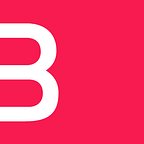 We e live in an era of 24/7/365 charitable asks, whether from friends, Twitter campaigns, or crowdfunding sites. How are we supposed to make the most of this charitable spirit? In a world of shared social challenges, what’s a caring person to do? And if I were to turn the mirror on myself: how should I think about my own charitable giving?
We e live in an era of 24/7/365 charitable asks, whether from friends, Twitter campaigns, or crowdfunding sites. How are we supposed to make the most of this charitable spirit? In a world of shared social challenges, what’s a caring person to do? And if I were to turn the mirror on myself: how should I think about my own charitable giving?
These are questions I’ve wrestled with a lot. I’m a self-proclaimed philanthropy wonk — I have worked in, written about, advised others, and helped track trends in the industry for more than two decades. But that doesn’t make the question of charitable giving any less thorny.
At some point, I’ve realized that before I figure out how to give, I need to ask myself why. Why do I give?
For you, the answer may be straightforward. It feels good. You were asked. You always do it. You enjoy the tradition. You’ve benefitted and want to give back. Your religion instructs you to. You heard that Priscilla Chan and Mark Zuckerberg just pledged 99 percent of their Facebook stock holdings and were inspired to reconsider your role in shaping the future. Perhaps you’ve been touched by world events and feel you can’t stand by. Or your workplace matches gifts and you like to take advantage of every possible perk.
All of those reasons have one thing in common. They all derive from the opt-in nature of charitable giving. No one can make you give. It’s neither a requirement of citizenship nor the market economy, no matter how guilty the CVS cashier may make you feel. Each of us chooses whether and how to participate. This is not a bug; it’s a feature.
My own answer to “why I give,” is, quite simply, because I can. Because it’s my choice. Giving is a way to express myself, to signal what I care about, and what I stand for.
Ironically, the very breadth of that reason helps me focus. I don’t look for a short-term, measurable return on my dollar (though I can if I want to). I can support big, existential causes like civil liberties, political change, or the pursuit of social justice — which I know take a long time and for which my dollar is at best a long-term bet.
I don’t have to do what others say (though I can listen). The history of civil society in democracies is rich with causes once unpopular — from abolition to reproductive rights, environmentalism to gun control. More than two hundred years ago Andrew Hamilton noted the importance of this sector as protection of the minority against the tyranny of the majority.
I don’t have the financial resources of the Chan Zuckerberg family, but I do have access to the same toolbox of options for how I use my money for good. If there’s a way to invest, shop, volunteer, protest, or vote to achieve the goal I’m interested in, I’ll do that. I leave my charitable dollars for those issues or organizations where earned revenue is tough or impossible, and sustained action is needed. Once I’ve found the right organizations, I give them money and let them do their work.
There are three other types of donations I make. I donate my time by serving on boards and by taking shifts at the food bank or a local community center. I give blood. And I donate our family’s used clothing, books, and furniture to organizations that refurbish it or sell it as part of their missions. All of these kinds of donations make me feel good and are (usually) fun. Often, it feels like I got more than I gave.
But you tell me — if you give charitably, why do you do it? If you don’t give, why not? How intentional are you about your giving, and how do you think you can improve? How have you struggled with your personal giving?
Share your experience. Tell us what the rest of us could consider when we think about giving.
This article was originally published in BRIGHT Magazine on Dec. 15, 2015.
